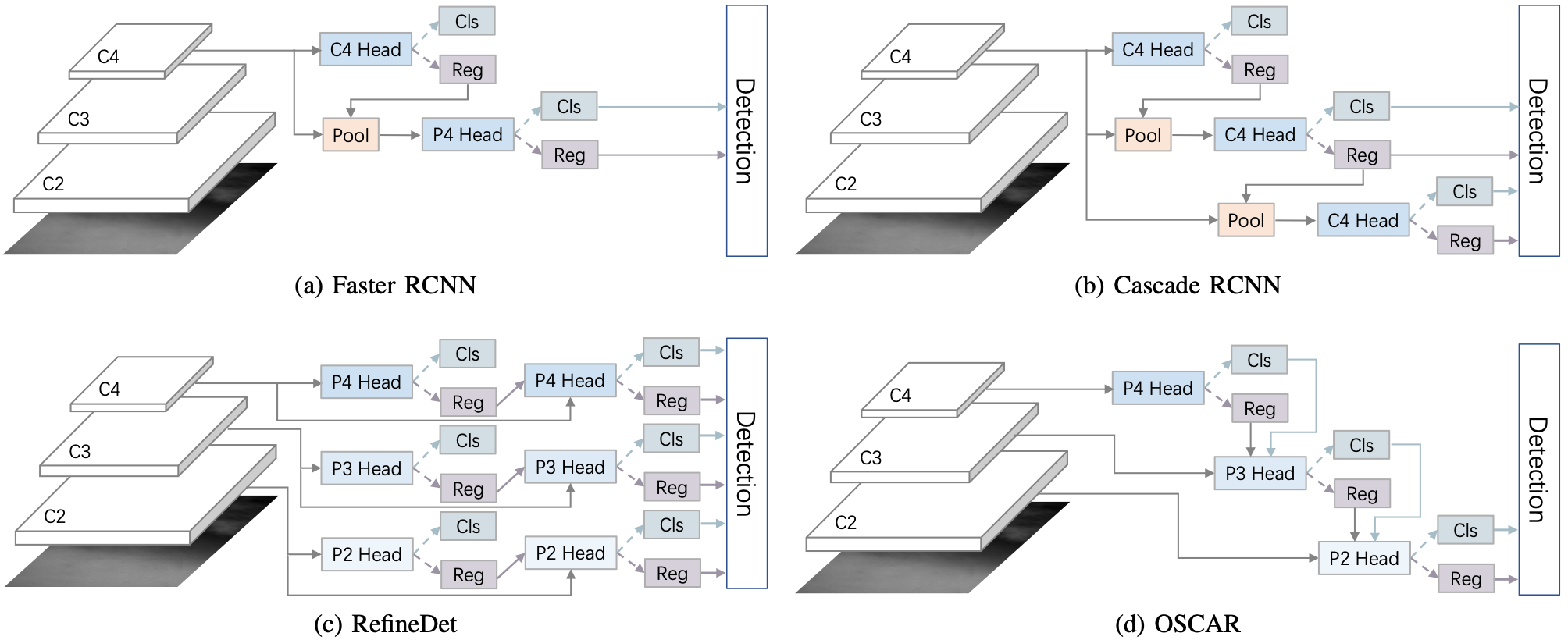One-Stage Cascade Refinement Networks for Infrared Small Target Detection
Single-frame InfraRed Small Target (SIRST) detection has been a challenging task due to a lack of inherent characteristics, imprecise bounding box regression, a scarcity of real-world datasets, and sensitive localization evaluation. In this paper, we propose a comprehensive solution to these challenges. First, we find that the existing anchor-free label assignment method is prone to mislabeling small targets as background, leading to their omission by detectors. To overcome this issue, we propose an all-scale pseudo-box-based label assignment scheme that relaxes the constraints on scale and decouples the spatial assignment from the size of the ground-truth target. Second, motivated by the structured prior of feature pyramids, we introduce the one-stage cascade refinement network (OSCAR), which uses the high-level head as soft proposals for the low-level refinement head. This allows OSCAR to process the same target in a cascade coarse-to-fine manner. Finally, we present a new research benchmark for infrared small target detection, consisting of the SIRST-V2 dataset of real-world, high-resolution single-frame targets, the normalized contrast evaluation metric, and the DeepInfrared toolkit for detection. We conduct extensive ablation studies to evaluate the components of OSCAR and compare its performance to state-of-the-art model-driven and data-driven methods on the SIRST-V2 benchmark. Our results demonstrate that a top-down cascade refinement framework can improve the accuracy of infrared small target detection without sacrificing efficiency. The DeepInfrared toolkit, dataset, and trained models are available at https://github.com/YimianDai/open-deepinfrared to advance further research in this field.
PDF Abstract
